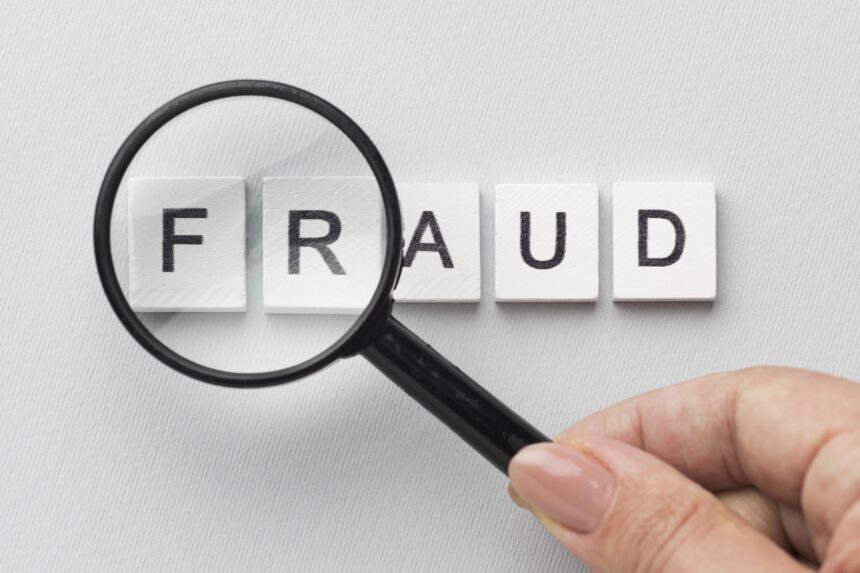In today’s digital age, credit card fraud and identity theft have become significant concerns for individuals and businesses alike. Criminals are constantly devising new ways to gain unauthorized access to sensitive financial information, leaving innocent victims with the aftermath of fraudulent transactions and compromised identities. However, there are proactive steps you can take to protect yourself from credit card fraud and safeguard your personal information. In this article, we will discuss essential measures you can implement to avoid becoming a victim of identity theft.
- Be vigilant with your personal information: One of the fundamental aspects of preventing credit card fraud is to be cautious about sharing your personal information. Only provide your credit card details, social security number, or other sensitive information when absolutely necessary and with trusted entities. Avoid sharing such information over unsecured networks or through unsolicited emails or phone calls. Legitimate organizations will never ask for sensitive details through these channels.
- Secure your physical cards: Protecting your physical credit cards is crucial in avoiding credit card fraud. Keep your cards in a safe and secure location, such as a wallet or a cardholder, to prevent them from being lost or stolen. Additionally, consider signing the back of your cards as an added layer of protection. If you have old or expired cards, make sure to cut them into small pieces before disposing of them to prevent dumpster divers from retrieving the information.
- Regularly review your bank statements and credit reports: Being proactive in monitoring your financial activity is essential for early detection of any fraudulent transactions. Regularly review your bank and credit card statements to identify any unauthorized charges. If you notice any suspicious activity, immediately report it to your bank or credit card provider. Furthermore, obtain a free copy of your credit report annually from the major credit bureaus and carefully review it for any accounts or inquiries you don’t recognize.
- Strengthen your online security: With the increasing prevalence of online transactions, it is crucial to fortify your online security to avoid falling victim to credit card fraud. Ensure your computer, smartphone, and other devices are equipped with updated antivirus and anti-malware software. Create strong, unique passwords for your online accounts, and consider using a password manager to securely store them. Be cautious when clicking on links in emails or messages, especially those requesting personal information. Always verify the authenticity of the website by checking for secure connections (https://) and familiarize yourself with common phishing techniques.
- Utilize additional security features: Many credit card companies offer additional security features to help protect against fraud. Enable two-factor authentication for your online accounts whenever possible. This adds an extra layer of security by requiring a verification code sent to your mobile device or email in addition to your password. Some credit card issuers also provide the option to receive real-time alerts for every transaction made with your card, allowing you to quickly identify any unauthorized charges.
- Be cautious when using public Wi-Fi: Public Wi-Fi networks can be vulnerable to hackers, making it risky to conduct sensitive transactions or access personal information while connected to them. Avoid logging into online banking, making online purchases, or accessing other sensitive accounts when connected to public Wi-Fi. If you need to perform such activities, consider using a virtual private network (VPN) to encrypt your internet connection and ensure secure browsing.
- Report lost or stolen cards immediately: If you misplace your credit card or suspect it has been stolen, act promptly. Contact your credit card company or bank immediately to report the loss or theft. Most financial institutions have 24/7 customer service helplines specifically for such situations. By reporting it promptly, you can limit your liability for any fraudulent charges made with the card and request a replacement card.
- Shred sensitive documents: Identity thieves often sift through trash in search of discarded financial documents containing valuable information. Safeguard yourself by shredding any documents that contain personal details, such as bank statements, credit card offers, or receipts, before disposing of them.
Credit card fraud and identity theft can have severe consequences on your financial well-being and personal life. By adopting these preventive measures, you can significantly reduce the risk of falling victim to such crimes. Remember, staying informed and proactive is the key to safeguarding your financial information and protecting yourself from credit card fraud and identity theft










